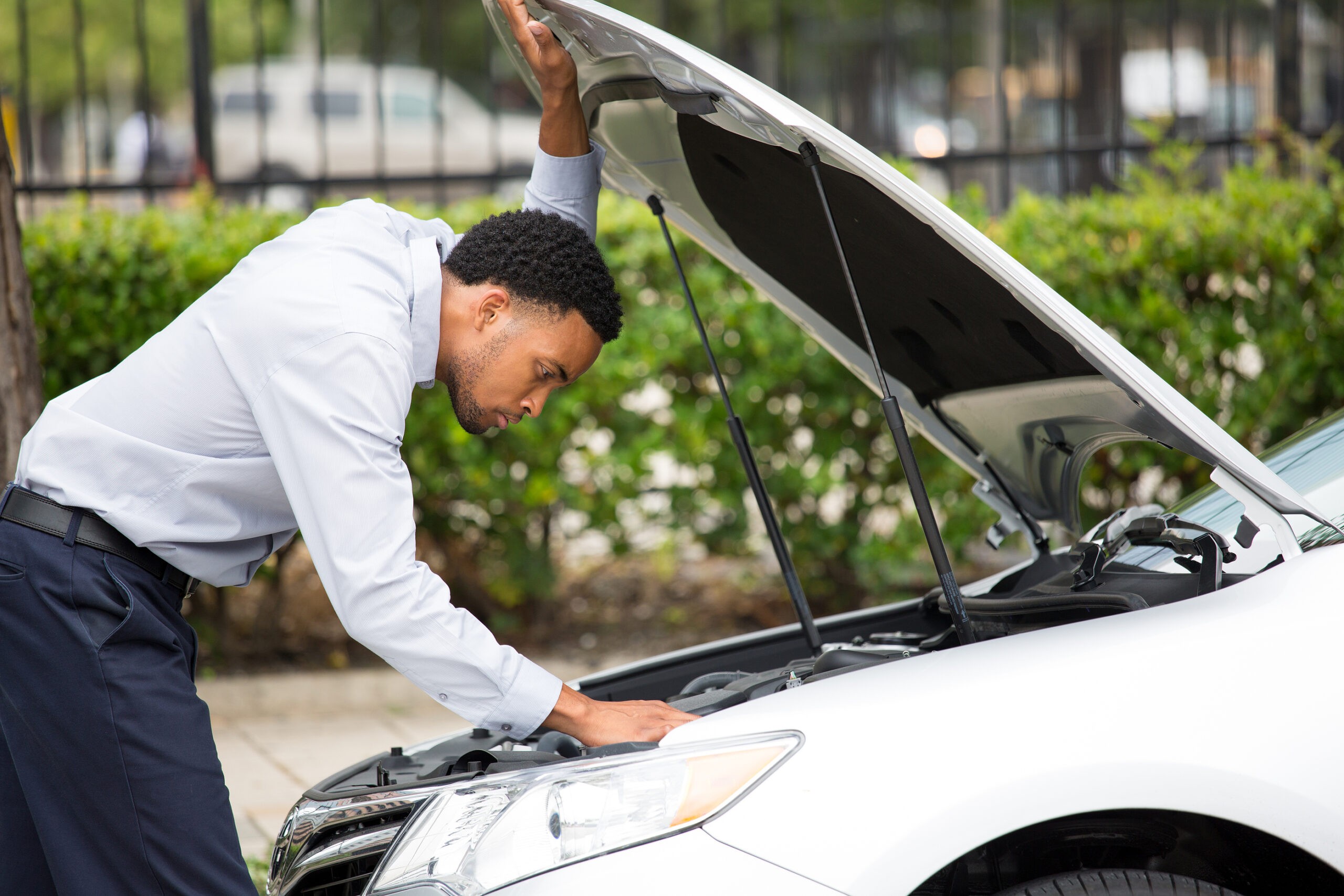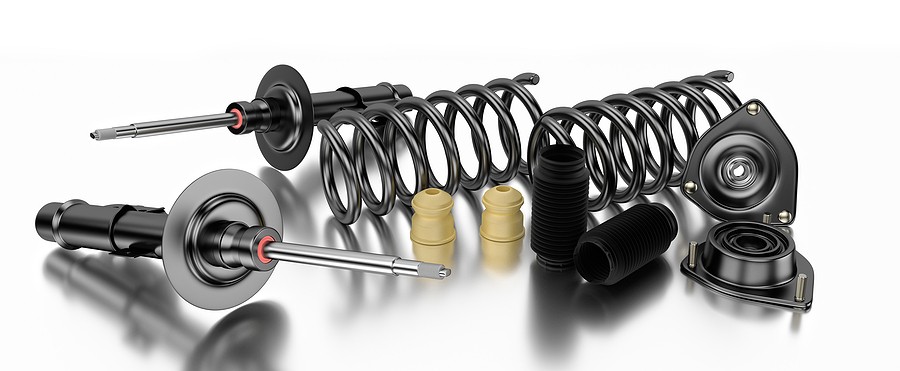If you're wondering “how to know if the suspension is damaged,” below are the ten most common symptoms:
- Uneven tire wear
- Pulling or drifting
- Balancing or excessive body roll
- Unusual noises
- Difficulty steering
- Excessive dipping during braking
- Steering wheel vibration
- Fluid leaks
- Titled vehicles
- Excessive bouncing after hitting a bump
The suspension system is a critical component of your vehicle. Many might underestimate this component and never consider it when it suffers from problems.
This component is responsible for absorbing road shocks to make your driving experience as smooth as possible. When this component is not working properly, you'll deal with many complications that will impact your driving experience and might result in safety issues.
Understanding when the suspension system is going bad or is about to go bad is very important to help you address the problem before it gets very complicated and requires a lot of money for repair.
This article highlights the ten most important symptoms you should watch if searching for “how to know if the suspension is damaged?” You must consult your mechanic immediately whenever you notice any of these symptoms.
How do we know if the suspension is damaged?
When your car suffers from any internal problem, it will show many symptoms to help you focus on what's happening. Some of these symptoms might be early signs that are important to address before you deal with the more complicated signals.
You must understand what exactly is going on. Your vehicle is showing you some weird noises and behaviors. Some of these behaviors might be related to a significant problem, including those that might impact your safety.
The following highlights the ten most important symptoms to watch for if you're searching for “how to know if the suspension is damaged?”
1- Uneven tire wear
If you suspect your suspension system has a problem, you first want to check the tire wear. Typically, the suspension system should not result in strange tire wear. In other words, the tire wear should be even among all tires. Otherwise, you're dealing with an internal problem that has to do with the vehicle balance.
In most scenarios, the uneven tire wear might be related to an issue with the suspension system. However, that is not always true, especially if your vehicle doesn't have the proper alignment. Therefore, your mechanic must inspect more closely to confirm the real culprit.
2- Pulling or drifting
If your suspension system doesn't operate properly, you'll notice that your vehicle might be drifting or pulling towards one side more than the other. Have you ever been driving your car straight and realizing that if you let go of the steering wheel, the vehicle will go towards one side? That could be an issue with the suspension system.
The suspension system is designed to make your vehicle even and should not make the load go toward one side more than the other. If that happens, dealing with vehicles drifting towards that side is unsurprising.

3- Balancing or excessive body roll
When your sentence system is completely damaged or if it has severe issues, you'll notice some problems that have to do with the vehicle or balance. In other words, some people complain that the car almost rolls towards one side more than the other.
You could park your car straight and choose a horizontal surface to confirm that the vehicle is not unbalanced because of the surface. Then, look at the vehicle from far away, see if it's not balanced, and if the body is rolling towards one side.
4- Unusual noises
The suspensions consist of many internal components, including the shocks, struts, springs, etc. When any of those components are not working properly, some might get damaged, and others might get loose. In that case, it's not surprising to deal with unusual noises because of a bad or damaged suspension system.
Therefore, automotive experts typically never recommend ignoring any strange noises from your car. Without these noises being low or loud, you should address them because the more you read the problem, the more complicated it gets and the higher your repair costs.

5- Difficulty steering
Your car is manufactured in a way where all the systems should interact with each other easily without any issues. If there is a problem with this pricing, it's not surprising to deal with issues related to the steering system.
For example, their suspension system or a completely damaged suspension might result in difficulty steering. In that case, you're putting your life at risk because you might not be able to move your car or direct it in a way that takes you away from danger.
6- Excessive dipping during braking
Have you ever been in a situation where you tried breaking your car but realized that the car was dipping more than it should? That could be a significant problem as a special system, and the more obvious the problem, the harder it is to repair these components within your suspensions.
Since the breaking system has to do a lot with your safety, it is important that if you get to this point with your suspension, you never ignore the issue because otherwise, you can put your life and other people driving around you at risk.

7- Steering wheel vibration
In some instances, the steering wheel might start vibrating and shaking because of problems related to the suspension system. That's why you must never ignore any vibration or shaking from your car, regardless of where it's coming from.
Not every time your steering wheel vibrates; the problems related to the suspension could be an issue with the steering wheel itself. Therefore, you cannot immediately go ahead and inspect or replace any component with your suspension unless you confirm that it's the row culprit.
8- Fluid leaks
Interestingly, that suspension system might lead to fluid leaks, especially if this or the shocks are damaged. Remember that fluid leaks are not a fun situation to deal with because they can easily damage other components and might even result in a complete failure in your vehicle.
Even if the fluids are unrelated to the suspension system, you must never ignore them. For example, you might deal with even more critical and serious fluid leaks, like those related to coolant leaks or engine oil leaks.

9- Titled vehicles
In many instances, if you're suspension resulted in two severe issues that impacted the vehicle safety, your car might get titled. In other words, your insurance company or the mechanic might suggest that driving this vehicle on public roads is unsafe.
Imagine ignoring a simple problem in one of the components within your suspension system that could impact the overall value of your car?! Therefore, you mustn't ignore and address the issue before you lose your car.
10- Excessive bouncing after hitting a bump
Finally, since the suspension system absorbs any shocks when driving, you'll notice significant and excessive bouncing after heading any bump when the system goes bad.
This bouncing is expected to get more clear if the bump is bigger. In that case, you should start inspecting the suspension system and look for any potential symptoms that could help you just the problem before dealing with a completely damaged suspension.

How do we know if the suspension is damaged? Final thoughts
The suspension system is critical for absorbing road shocks and making your driving experience as smooth as it goes bad; you'll deal with all sorts of symptoms to help bring your attention to resolve the issue before repair costs pile up.
This article highlighted the ten most common symptoms indicating that your suspension system is damaged. Those include uneven tire wear, some weird drifting, issues with the vehicle balancing, and others.
Whenever you notice these symptoms, you must visit the mechanic as soon as possible and have him fix the issue before things require more money and your vehicle fails.
Note that sometimes repair costs can be beyond your vehicle's value, and if that's the case, it might be better to sell your car rather than waste your time and effort. If you're looking for someone to buy your car regardless of its damages, consult Cash Cars Buyer at 773-791-4363.
If you're interested in similar posts, we highly encourage you to visit our blog by clicking here.



